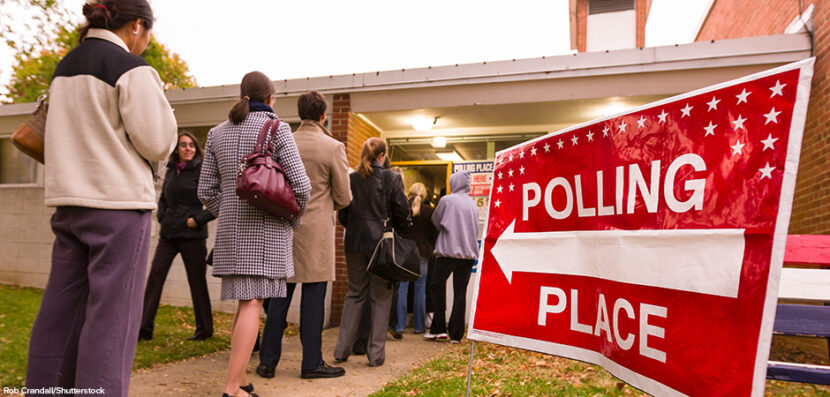Biden’s and Trump’s Recent Primary Results
On Tuesday, March 5, 2024, voters in 16 states and Democratic Party voters in one territory cast ballots in the presidential primaries and caucuses. This “Super Tuesday” of voting gave decisive wins to Donald Trump and Joe Biden in their respective party’s races. Then, the following Tuesday, Georgia, Michigan, and Washington all held Democratic and Republican primaries. With these contests, Trump and Biden secured the minimum number of delegates needed for their party’s nominations.
Super Tuesday
Donald Trump won the Republican contests easily in all but one of the states. In Vermont, former UN ambassador Nikki Haley prevailed against Trump. But the results in Vermont were very close. Haley won 49.8 percent of the vote, compared to Trump’s 45.6 percent. Much of Haley’s support came from independent voters. Haley lost each of the other 14 Super Tuesday contests. The following day, she suspended her campaign. She was the last of Trump’s Republican challengers. In her announcement, Haley did not endorse Trump.
President Joe Biden was the clear winner of all but one of the Democratic races. In the territory of American Samoa, Biden lost the vote to Jason Palmer. Palmer won 56 percent of the vote. Palmer is a Maryland businessman who has worked in multiple businesses and investment firms. Biden and Palmer each earned 3 delegates in American Samoa, but Biden easily won every other contest.
Updating the Delegate Count
In each primary election or caucus, the candidates secure a certain number of delegates to vote for them in their party’s nominating conventions. The Republican Party’s nomination rules say that a candidate needs 1,215 bound delegates of the total number of 2,429 delegates in all primaries and caucuses. The Democratic Party’s rules are that a candidate must have 1,968 out of 3,934 delegates to be the party nominee.
After Super Tuesday, Trump had 1,078 delegates and Nikki Haley had 91 delegates. She was the first Republican woman to win two primary elections, although the delegate totals could not challenge Trump’s substantial lead. Meanwhile, President Biden had 1,862 delegates after the results of Super Tuesday.
Neither Trump nor Biden had secured their party’s nominations yet. Then on Tuesday, March 12, Georgia, Michigan, and Washington all held Democratic and Republican primaries.
In all three contests, President Biden easily won each primary and added these delegates to his total. As a result, Biden crossed the minimum number threshold of delegates needed for the nomination. As of March 13, he had 2099 pledged delegates.
Donald Trump also won each Republican primary in these three states and claimed all the available delegates. His total delegate count increased to 1,247 and because Nikki Haley suspended her campaign, he has no other Republican challenger.
Now that they have secured enough delegates in the primaries, Biden and Trump will focus their political campaigns on one another and prepare for the general election.



